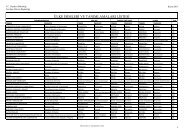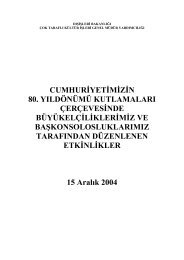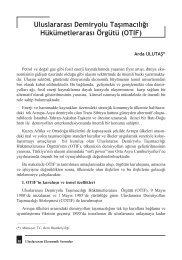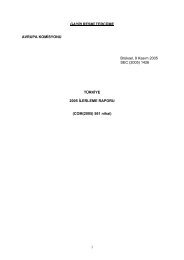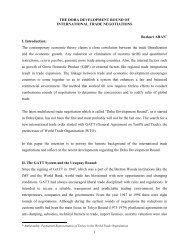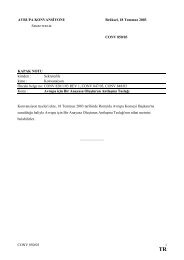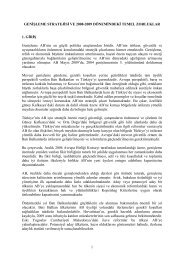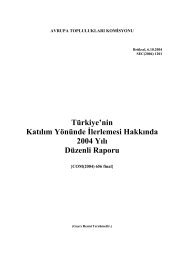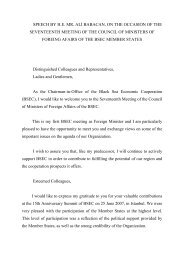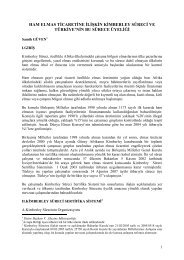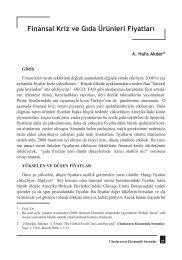ULUSLARARASI EKONOMİK SORUNLAR
ULUSLARARASI EKONOMİK SORUNLAR
ULUSLARARASI EKONOMİK SORUNLAR
You also want an ePaper? Increase the reach of your titles
YUMPU automatically turns print PDFs into web optimized ePapers that Google loves.
Özgür ÇALIŞKAN<br />
On the other hand, in globalization process, as Stiglitz (2002) states, “the international<br />
institutions have pushed a particular ideology (market fundamentalism) that is both bad<br />
economics and bad politics; it is based on premises concerning how markets work that<br />
do not hold even for developed countries, much less for developing countries. The IMF<br />
has pushed these economics policies without a broader vision of society or the role of<br />
economics within society. And it has pushed these policies in ways that have undermined<br />
emerging democracies” (p.2).<br />
From the Polanyi’s vision: Markets as a part of broader society<br />
This dichotomy between markets and politics is a good point for recalling the<br />
Polanyi’s vision in The Great Transformation. Polanyi (1940) saw “the market as part<br />
of the broader economy, and the broader economy as part of a still broader society”<br />
(p.9). For Polanyi, the human economy is not autonomous, but subordinated to politics,<br />
religion and social relations (the conception of embeddedness). Due to the impossibility<br />
of disembedding the economy (explained by fictitious goods-labor, land, money), fully<br />
self-regulating market economy is an utopian project (p.18-9).<br />
For Polanyi, the deepest flaw in market liberalism is that it subordinates human<br />
purposes to the logic of an impersonal market mechanism. Polanyi’s vision explains<br />
that the failure to deal with this challenge produced catastrophic implications in the past<br />
century (Fascism in Europe) and today (inequalities and social conflicts in Africa and<br />
Latin America). He concludes that “human beings should use the instruments of<br />
democratic governance to control and direct the economy to meet our individual and<br />
collective needs” (p.32).<br />
Conclusion: It’s politics, stupid…<br />
Consequently, the proposition that globalization make states unnecessary is not<br />
persuasive and credible. Although globalization has reorganized the global economic<br />
dynamics and undermined national politics, the nation-state continues to remain as the<br />
basis of international relations and main framework for the exercise of sovereignty and<br />
democratic governance in the changing context of globalization. So, an updated realist<br />
perspective is needed to “bring the state back in” to understanding international<br />
economic and political relations.<br />
Uluslararası Ekonomik Sorunlar 39



